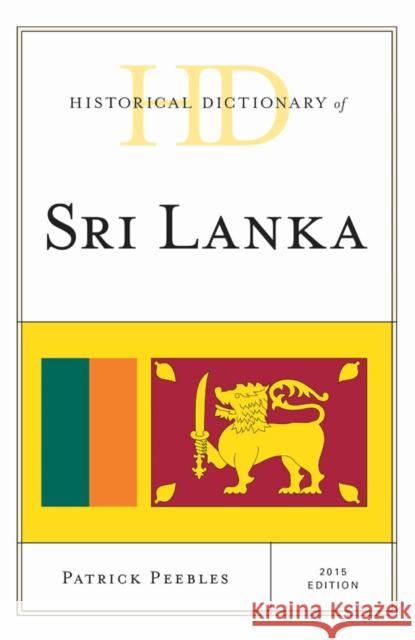Historical Dictionary of Sri Lanka » książka
Historical Dictionary of Sri Lanka
ISBN-13: 9781442255845 / Angielski / Twarda / 2015 / 494 str.
Sri Lanka has had a celebrated history, a long colonial past, and since independence in 1948 has passed through a series of crises and political experiments. It has had a remarkable record of voters turning out unpopular governments, often by sweeping margins. On 8 January 2015 voters again performed this feat when Maithripala Sirisena, representing a coalition of disparate parties, defeated Mahinda Rajapaksa for the presidency. Rajapaksa was turning the nation away from its democratic heritage towards authoritarianism and militarism. Independent Sri Lanka's economy stagnated for decades before it began to grow in the 1980s. It has had significant economic growth since the end of the 26-year war against the separatist Liberation Tigers of Tamil Eelam (LTTE) in 2009. Although reconciliation between the Sinhalese Buddhist majority and Hindu, Muslim and Christian minorities seems distant, prospects for Sri Lanka seem better than they have been for decades. The Historical Dictionary of Sri Lanka contains a chronology, an introduction, appendixes, and an extensive bibliography. The dictionary section has over 700 cross-referenced entries on important personalities, politics, economy, foreign relations, religion, and culture. This book is an excellent access point for students, researchers, and anyone wanting to know more about Sri Lanka.











